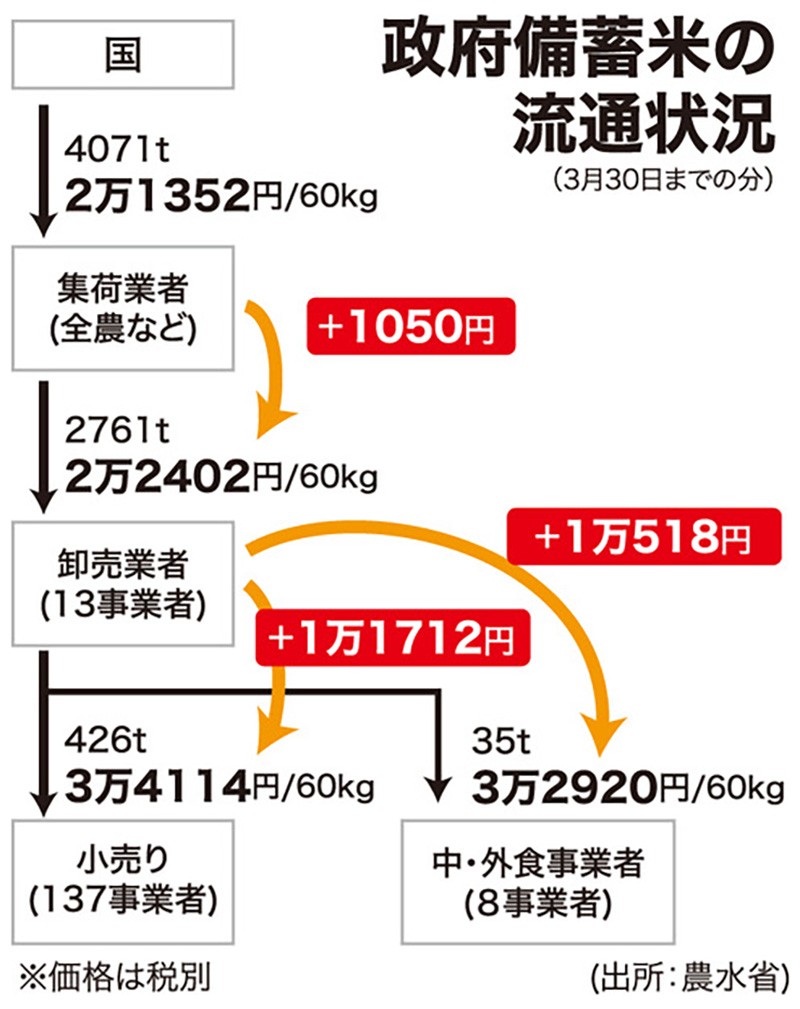Japanese Rice Reserves: JA Faces Potential Losses Amidst Surplus and Price Volatility
Japan's agricultural cooperative, JA-Zenchu (JA), is facing potential losses due to a surplus in rice reserves. This news follows years of government-backed price supports and fluctuating market demands, highlighting the challenges facing Japan's rice industry. The situation underscores the complexities of managing agricultural surpluses and maintaining stable prices in a globalized market.
Mounting Rice Reserves: A Growing Concern
Japan's rice reserves have swelled significantly in recent years. Government policies aimed at supporting domestic rice farmers have led to guaranteed minimum prices, resulting in an oversupply. This surplus is now putting pressure on storage facilities and threatening the financial stability of JA, the organization responsible for managing much of the country's rice inventory.
Key Factors Contributing to the Surplus:
- Government Price Supports: The guaranteed minimum prices, while intended to protect farmers, have unintentionally incentivized overproduction.
- Decreasing Domestic Consumption: Shifting dietary habits and a smaller population are contributing to lower domestic demand for rice.
- Import Competition: While limited, imported rice still exerts some pressure on the domestic market.
- Inefficient Storage and Management: Concerns exist regarding the efficiency and cost-effectiveness of current rice storage and distribution systems.
JA's Financial Implications: Potential for Losses and Restructuring
The accumulating rice surplus translates directly to potential financial losses for JA. The costs of storage, maintenance, and potential spoilage are mounting, threatening the cooperative's bottom line. This has prompted discussions regarding potential restructuring within JA and reevaluation of government policies.
Potential Solutions and Future Outlook:
- Policy Adjustments: The Japanese government is considering adjusting its price support mechanisms to better reflect market realities and reduce overproduction. This may involve gradual price reductions or implementing more targeted support for farmers.
- Diversification Strategies: Encouraging farmers to diversify their crops and explore alternative agricultural products could help reduce reliance on rice cultivation.
- Improved Market Access: Initiatives to enhance access to export markets could help alleviate the surplus through increased sales abroad. However, this requires navigating complex international trade regulations and competing with other rice-producing nations.
- Technological Advancements: Investing in advanced technologies for rice production and storage could improve efficiency and reduce waste.
The Broader Impact on the Japanese Economy and Food Security
The situation with Japan's rice reserves has implications that extend beyond JA's financial health. It raises questions about the long-term sustainability of the country's agricultural policies and its food security. A balanced approach is needed to ensure the livelihoods of rice farmers while avoiding unsustainable surpluses and financial burdens.
Conclusion: Navigating the Challenges Ahead
The challenges facing JA and the Japanese rice industry are complex and require a multifaceted approach. Balancing the needs of farmers with the realities of market dynamics will be crucial in ensuring a sustainable future for this vital sector of the Japanese economy. The coming months will be critical in determining how the government and JA respond to the current crisis and implement effective long-term solutions.
Keywords: Japanese rice reserves, JA-Zenchu, rice surplus, government price supports, agricultural policy, food security, Japan rice market, rice production, domestic consumption, import competition, financial losses, agricultural cooperative
Related Articles: (Internal links to other relevant articles on your website – replace with actual links)
- [Link to article on Japanese agricultural policy]
- [Link to article on global rice markets]
External Links: (External links to reputable sources – replace with actual links)
- [Link to Ministry of Agriculture, Forestry and Fisheries Japan website]
- [Link to a reputable news source reporting on the issue]
Call to Action: What are your thoughts on the challenges facing Japan's rice industry? Share your opinions in the comments below!
